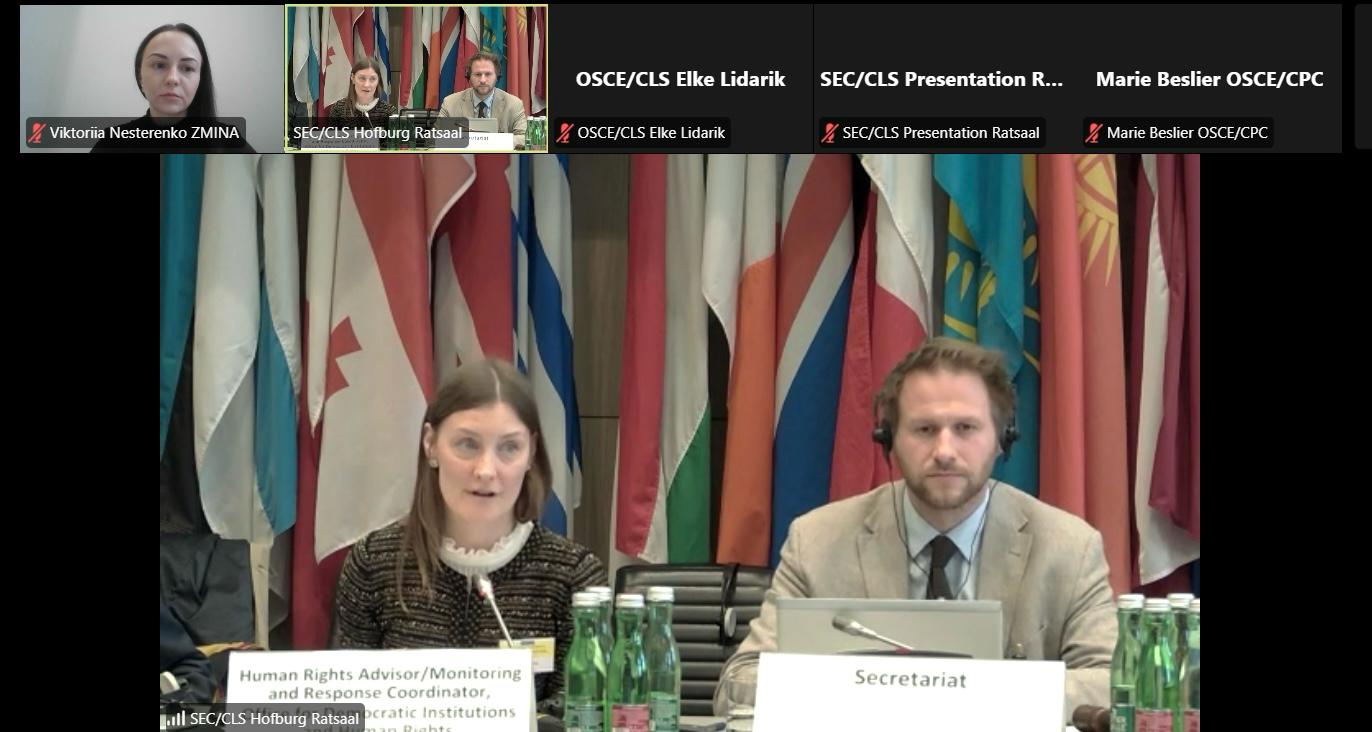ZMINA joined the OSCE Human Dimension Committee Meeting about the rights to assembly and association
The Organization for Security and Co-operation in Europe (OSCE) held a meeting of its Human Dimension Committee to discuss growing challenges to the rights to peaceful assembly and association. It brought together international human rights experts, diplomats, and civil society leaders. Among the key speakers was Viktoriia Nesterenko, Project Manager at the Human Rights Centre ZMINA.

The goal of the meeting was to highlight how their rights — basic freedoms to gather, peacefully protest and express opinions — are under threat in many countries across the OSCE region. Specific attention was given to how governments are using laws, police force, and other means to silence public gatherings and civil society, including protests for environmental protection, gender rights, and political freedoms.
In her speech, Nesterenko spoke about how Russia has been violating these rights in the occupied territories of Ukraine. She explained that Russian authorities have used threats, arrests, and violence to stop peaceful protests and public gatherings.
She described how people in Crimea are punished just for standing alone with a sign or gathering near a courthouse to support their relatives. Nesterenko gave examples of Crimean activists, journalists, and even elderly women who were detained, fined, or harassed for peacefully protesting.
“The first victim was Crimean Tatar activist Reshat Ametov, who on March 3, 2014, went on a solo picket against the occupation in Simferopol. He was kidnapped and brutally murdered. Then, Russia began conducting mass searches of Crimean Tatar homes, illegally detaining and trying them, mass dispersals and detentions of activists and journalists, politically-motivated trials,” said Viktoriia.
Since the beginning of the full-scale invasion, Russia has expanded the practice of persecution of peaceful assemblies in the newly occupied territories. From February 2022 to June 2023, ZMINA recorded at least 562 cases of kidnappings of active citizens. Some of these people have been held in places of deprivation of liberty in incommunicado conditions for more than three years.
She also stressed that Russian authorities are using their laws in Ukrainian territory to ban civil society groups, religious organisations, and community meetings — something that goes against international law.
Nesterenko’s presentation added a voice from Ukrainian civil society to the meeting, showing how people in occupied regions continue to face serious human rights violations. Her testimony helped underline the importance of international attention and support for defending basic freedoms in Ukraine in the face of Russia’s aggression.
If you have found a spelling error, please, notify us by selecting that text and pressing Ctrl+Enter.















